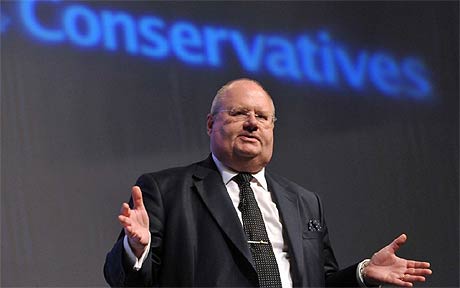The Rt. Hon Eric Pickles MP
Secretary of State for Communities and Local Government and Minister for Faith
Department for Local Communities and Government
2 Marsham Street
London
SW1P 4DF
eric.pickles@communities.gfi.gov.uk
24 February 2015
Dear Mr Pickles,
We are writing in response to comments attributed to your department in an article published by this week’s Sunday Telegraph in which a spokesman is quoted as saying: “We are very clear that we will not fund or engage with groups which promote violent or non-violent extremism. All individuals represented on the cross-government working group on anti-Muslim hatred are committed to the peaceful integration of all communities.”
The statement appeared in the context of an article by the Islamophobic journalist Andrew Gilligan purporting to show how so-called Islamic radicals had infiltrated the cross-Government working group on anti-Muslim hatred set up by Baroness Warsi and Nick Clegg.
The statement is disturbing not least because it implies that the government is pandering to Islamophobic demands to exclude Muslims from policy-making positions. We are particularly worried by the idea that people or groups can be excluded for supporting “non-violent extremism” which could give the government carte blanche to not consider voices in the community that might be at odds with the political positions held by government officials.
As you know, extremism is a very loaded and highly subjective term that is often used pejoratively to describe those who hold differing positions. Over the years the term has been thrown at both Unionist and Republican MPs from Northern Ireland and also more recently at UKIP politicians for their strident anti-European and anti-immigration stand.
A policy of excluding voices with which you don’t agree is a recipe for exclusion, not the kind of inclusion that the DCLG claims to want to promote. Certainly, from the perspective of the Muslim community it feels very much like the term extremism is being used as a catch-all to exclude their views from legitimate political discourse.
IHRC believes it would be useful if the government could clarify whether or not the quote is a statement of actual policy and if so lay out the definition of “extremism” that it applies. We would also like to know the criteria that is being used to recruit personnel to the cross government working group and the relevant expertise and qualifications of those who have been appointed to it.
The article’s charge of “entryism” or loading committees and parties with one’s own supporters is a tactic that is often used by bigots to attack minority groups and prevent them from exercising their fundamental rights in society. It is used by anti-Semites to target Jews who are in positions of authority and influence. Quite rightly, most politicians show little tolerance for such behaviour. Viewed in this light, Muslims can justifiably feel aggrieved that the government has fallen short of its duty to issue a similarly swift and vociferous condemnation of the use of such tactics against their community and instead appears to be concurring with the Islamophobic premises of the article.
Sincerely,
Massoud Shadjareh
Chair







